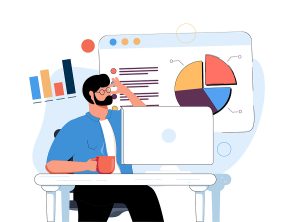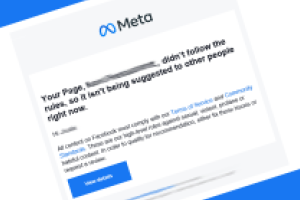Ever since the Cambridge Analytica scandal, people have grown more aware of the sheer volume of private data that platforms from Google to Facebook share to their ad creators and sell to third parties. This, combined with measures passed in the US and abroad (such as the GDPR), have lead to major concerns on just how information on individuals is captured, used, and exploited – especially as a tool for political or even international gains. Today, I’d like to share with you, from the perspective of a marketing agency, social media and search engine online advertising to help you understand how online advertising works.
How and Why User Data is Collected
The idea of personal data being collected is nothing new, since the start of the “Nielsen ratings” in 1947, there has been self-reporting on user habits. As technology progressed, home unit “people meters” were installed on TVs to track live the view habits of users. Today with the internet and digital infrastructure in place, it’s become very easy to track users on their platforms (or even IPs) and bundle that data for selling.
How Free Online Service Have a Catch
What do Facebook and Google Search have in common? Their wild success with consumers is largely due to their accessibility: they have no cost in entry and provide users with a now-essential online service. The money they get from the platforms is generated in two ways: integrating it with UIs to make advertising on the platform (Facebook Ads and Google Ads) and selling it to third parties.
The Lucrative World of Ads and Data Brokers
By creating their own advertising platforms on their services, these platforms allow easier and faster access to advertising by businesses and managing agencies. They keep all profits in house and the data within a somewhat closed system. Alternatively, they can sell user data to third parties, specifically data brokers, who in turn sell to marketing agencies or other businesses. This is a big industry; for example, one of the largest brokers, Acxiom, reporting over $800 million in revenue in 2015 alone.
How Marketing Agencies Use This Data to Advertise
Here at Vision, we work with clients to build managed advertising plans, where we use ad platforms like Google Ads and Facebook Ads to meet their goals – be it increased page traffic, targeting Ideal Client Profiles, or just increasing their online presence. The anonymized personal data that companies like Facebook provide allow us to better target our ads at customers who are interested in their services, which is good for our clients and their customers who want their products and services.
The Dark Side of Targeted Ads
We’ve also seen targeting and restriction put in place (especially on Facebook) due to the misuse of advertising. This includes using ads to target vulnerable minorities for housing, credit, and job schemes, as well as political ads that spread misinformation and false news. We agree and support removing certain interests and demographics that we don’t use and frankly should exist.
What to Take Away About Online Advertising
As a marketing company down in the trenches seeing how online advertising impacts our client’s success and ROIs, we can safely say that in most industries that paid advertising is essential to their digital marketing. Likewise, for industries active on social media that adding paid and sponsored ads to their plans dramatically increases their reach on those platforms. When it comes to spending your limited resources of time and money on marketing, online advertising is one of the most cost-efficient platforms out there.
Using data and analytics on both advertising platforms and your own website allow your business to make better decisions on what’s working and what isn’t. Work with a marketing agency that understands how these platforms are intended to work that adjusts as clients, seasons, and trends change. Contact Vision today to learn more about our paid search and social media advertising options and how they figure into a comprehensive marketing plan.




